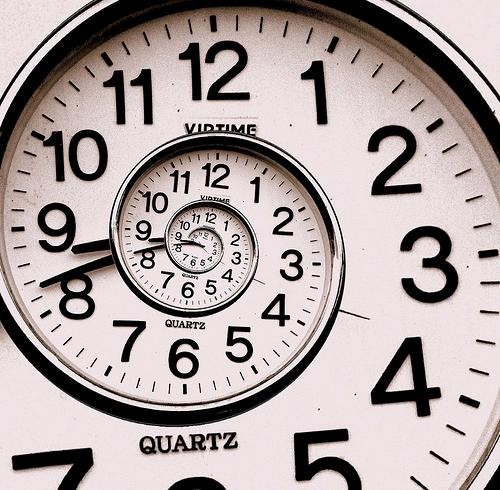Of Time and Eternity
Among the most profound and perplexing questions the human mind can entertain are the questions concerning the nature of time and eternity. What is time? Why did God create time? Why did God created with time (cum tempore)? What is eternity? Is there such a thing as eternity past? Will we speak, in the hereafter, of eternity future? Many such questions arise when we stop and think about the depth of these questions. We know that God is not limited by or contained to time. We also know that time was the first thing that He created: “In the beginning…” Experientially, we know that “time is what keeps us from getting everything done at once.”1 But why did God create time, and how does it differ from the eternity we await?
In the Confessions, St. Augustine breaks into one of the most fascinating meditations on the relation of God and time. I remember stumbling across this as a new Christian. It set me on course to understand a distinctly Christian philosophy of time and history. It is not in vain that Augustine has been coined the greatest thinker of the Christian church. Of time and eternity, Augustine wrote:
At no time, therefore, had You not made anything, because You had made time itself. And no times are co-eternal with You, because You remain forever; but should these continue they would not be time. For what is time? Who can easily and briefly explain it? Who even in thought can comprehend it, even to the pronouncing of a word concerning it? But what in speaking do we refer to more familiarly and knowingly than time? And certainly we understand when we speak of it; we understand also when we hear it spoken of by another. What, then, is time? If no one asks me, I know; if I wish to explain to him who asks, I do not know. Yet I say with confidence, that I know that if nothing passed away, there would be no past time; and if nothing were coming, there would be no future time; and if nothing were, there would be no present time. Those two times, past and future, how are they, when even the past not now, and the future is not yet? But should the present always be present, and should it not pass into time past, it could not truly be time, but eternity. If then, time present–if it be time–only comes into existence because it passes into time past, how do we say that even this is, whose cause of being is that it shall not be, namely, that we cannot say what time truly is, unless because it tends not to be.2
The apostle Paul expressly stated, In Galatians 4:4, that time was made for Jesus Christ–to bring about the redemption that we have in Him: “In the fullness of time God sent forth His Son, born of a woman, born under the law, that He might redeem those who were under the law.” God created time to carry out His plans. If there were no time, there would be nothing for which to hope. If there were no hope, there would be no faith. Human history is redemptive-history. God ordained creation, the fall, redemption, judgment and restoration for the manifestation of His glory. His eternal decree necessitated the creation of time. Time is the servant of the outworking of this plan. This is why the same apostle could say, “Redeem the time for the days are evil.”
The question of eternity is much more difficult to answer. We are finite, and, therefore, will never be without limitations. We are spatially bound creatures, and, therefore, will never be ubiquitous. Will eternity be something different for us than it is for God? If we will worship, work, play, eat, sleep, create, invent, and build in eternity will this not necessitate some time table by which God’s plan for His redeemed will be carried out? Or, will our experiences in the New Heavens and the New Earth be ever present? The Bible does not seem to answer to this question. We will certainly be bound to space, so it is likely that there will be some termporal limitations as well. We will live with Christ forever, but will ourselves always be creatures subject to the limitations of creatures. Perhaps we will find time to be one of those fundamental limitations. Until then, we should redeem the time by growing in our love for and knowledge of our great God and Savior Jesus Christ, who, “at just the right time died for the ungodly.”
1. This was quoted by Phil Ryken during a pastoral round table discussion we had during my internship. He attributes it to one of his professors in college.\
2. St. Augustine Confessions (pp. 301 ff.)



